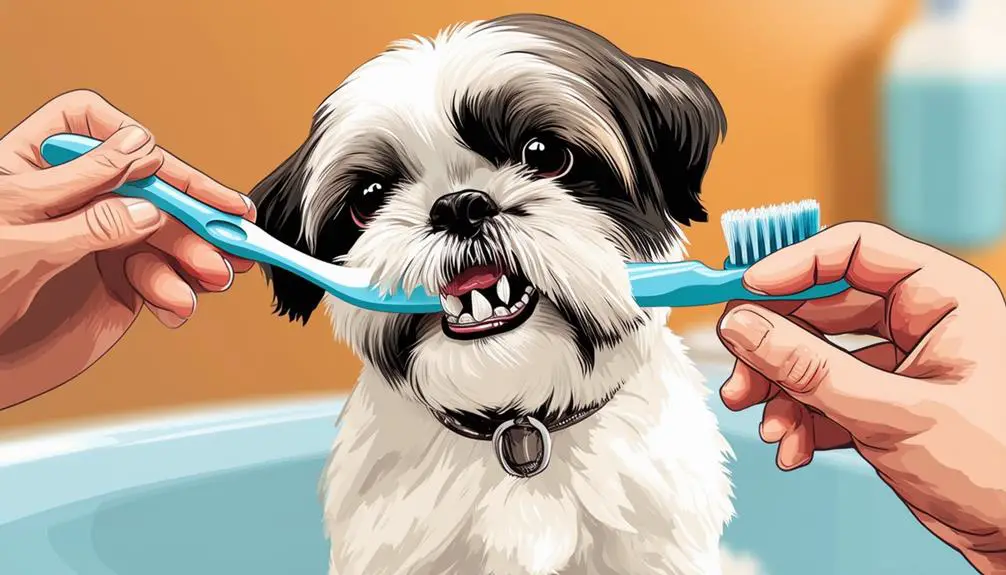
Owning a Shih Tzu, or any dog for that matter, involves understanding their emotional needs as well as their physical ones. Often, dog owners unknowingly engage in behaviors that can emotionally harm their pets. In this blog post, we will explore 20 actions that can hurt your Shih Tzu’s feelings and provide insights on how to avoid these common pitfalls.
Lack of Attention
Neglecting Quality Time
Shih Tzus are affectionate and crave attention from their owners. Neglecting to spend quality time with your dog can make them feel isolated and unloved. Regular interaction and playtime are essential to their emotional well-being.
Inconsistent Training
Confusing Your Dog
Inconsistent training can confuse your Shih Tzu, leading to frustration and anxiety. Consistent commands and routines help them understand what is expected and create a sense of security.

Yelling or Harsh Punishment
Instilling Fear
Yelling or using harsh punishment can instill fear in your Shih Tzu. Positive reinforcement is a more effective and humane way to train your dog, ensuring they feel safe and loved.
Ignoring Their Needs
Overlooking Basic Care
Ignoring your Shih Tzu’s basic needs, such as regular feeding, grooming, and bathroom breaks, can lead to stress and discomfort. Ensuring these needs are met is fundamental to their happiness and health.
Leaving Them Alone for Long Periods
Separation Anxiety
Shih Tzus are prone to separation anxiety. Leaving them alone for extended periods can cause significant stress and lead to destructive behaviors. If you need to be away, consider hiring a pet sitter or using doggy daycare services.
Not Socializing Them

Isolation from Others
Failing to socialize your Shih Tzu with other dogs and people can make them fearful and anxious. Regular socialization helps them become well-adjusted and confident in various situations.
Inconsistent Schedules
Disrupting Routine
Dogs thrive on routine. Inconsistent schedules for feeding, walking, and playtime can cause anxiety and confusion for your Shih Tzu. Try to maintain a consistent daily routine to provide stability.
Ignoring Body Language
Missing Signals
Ignoring your Shih Tzu’s body language can lead to misunderstandings and frustration. Pay attention to their signals, such as wagging tails, growling, or hiding, to understand their needs and emotions better.
Lack of Exercise

Pent-Up Energy
Shih Tzus need regular exercise to stay healthy and happy. Lack of physical activity can lead to pent-up energy, resulting in behavioral problems and emotional distress. Ensure they get daily walks and playtime.
Overfeeding or Underfeeding
Nutritional Imbalance
Overfeeding can lead to obesity, while underfeeding can cause malnutrition. Both can negatively impact your Shih Tzu’s health and emotional well-being. Follow a balanced diet and portion sizes recommended by your veterinarian.
Neglecting Dental Care

Oral Discomfort
Dental health is crucial for your Shih Tzu’s overall well-being. Neglecting dental care can lead to pain and discomfort, affecting their mood and behavior. Regular brushing and dental check-ups are essential.
Forcing Them into Uncomfortable Situations
Respecting Boundaries
Forcing your Shih Tzu into situations where they feel uncomfortable, such as meeting strangers or loud environments, can cause stress and anxiety. Respect their boundaries and gradually introduce new experiences.
Using Crates as Punishment
Creating Negative Associations

Using crates as punishment can create negative associations and make your Shih Tzu fearful of being crated. Crates should be a safe, comfortable space for them to retreat to, not a place of punishment.
Ignoring Signs of Illness
Recognizing Symptoms
Ignoring signs of illness or discomfort can lead to prolonged suffering and emotional distress for your Shih Tzu. Be attentive to changes in behavior, appetite, or physical condition and seek veterinary care when needed.
Lack of Mental Stimulation
Boredom and Frustration
Shih Tzus are intelligent dogs that require mental stimulation. Lack of engagement can lead to boredom and frustration, resulting in destructive behaviors. Provide toys, puzzles, and training activities to keep their minds active.
Not Giving Enough Affection
Emotional Neglect
Shih Tzus thrive on affection and physical contact. Failing to give them enough love and attention can lead to feelings of emotional neglect. Regular cuddles, petting, and positive interactions are vital.

Using Negative Reinforcement
Counterproductive Training
Negative reinforcement, such as scolding or punishment, can harm your Shih Tzu’s emotional health and make training counterproductive. Focus on positive reinforcement to encourage good behavior and build a trusting relationship.
Overexposure to Loud Noises
Sensory Overload
Shih Tzus can be sensitive to loud noises, such as fireworks, thunderstorms, or loud music. Overexposure to such sounds can cause anxiety and fear. Provide a quiet, safe space for your dog during noisy events.
Frequent Changes in Environment
Stability and Security

Frequent changes in living environments or constant travel can disrupt your Shih Tzu’s sense of stability and security. Try to maintain a consistent environment and routine to help them feel safe and comfortable.
Lack of Proper Grooming
Physical Discomfort
Neglecting regular grooming can lead to matting, skin irritations, and discomfort. Regular brushing, bathing, and trimming are essential for your Shih Tzu’s comfort and health. Proper grooming also provides an opportunity for bonding.
Conclusion
Understanding the emotional needs of your Shih Tzu is crucial for their well-being. By avoiding the behaviors outlined in this post, you can ensure your furry friend feels loved, secure, and happy. Pay attention to their needs, provide consistent care, and use positive reinforcement to build a strong, trusting relationship. Your efforts will result in a healthier, happier Shih Tzu, enhancing the bond you share.


